|
The Eisteddfodic tradition in Wales dates
back centuries but the 1858 National Eisteddfod held in Llangollen
established the festival generally as it is known today. The
National Eisteddfod visited Llangollen again in 1908 but Llangollen
is primarily known for the Llangollen International Musical
Eisteddfod.
In the bleak years following the 1939-1945
war, one of the world’s most important musical festivals
was established in Llangollen. Response to the suggestion
that nations could compete in a friendly manner was immediately
taken up by many who were tired after years of hate and, in
1947, the first International Eisteddfod took place with competitors
from fourteen different countries taking part.
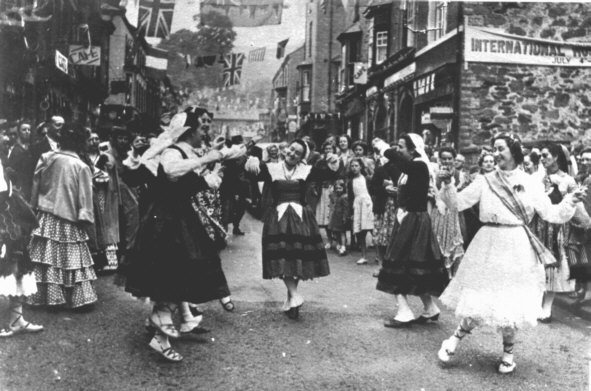 The Eisteddfod, today, is still going strongly
with more than 6,000 competitors from about fifty different
countries taking part in competitions for male, female, mixed
and youth choirs. In addition there are colourful competitions
for dance groups and folk song parties. The Eisteddfod is
almost entirely run by volunteers and about 400 committee
members from the Llangollen area are busy throughout the year
ensuring the success of the festival. The Eisteddfod, today, is still going strongly
with more than 6,000 competitors from about fifty different
countries taking part in competitions for male, female, mixed
and youth choirs. In addition there are colourful competitions
for dance groups and folk song parties. The Eisteddfod is
almost entirely run by volunteers and about 400 committee
members from the Llangollen area are busy throughout the year
ensuring the success of the festival.
|
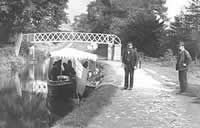
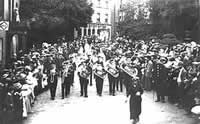
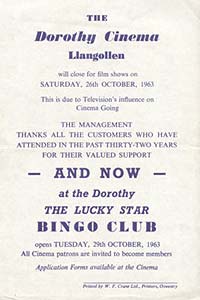
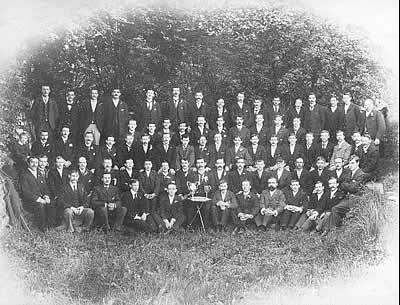 The
Llangollen Male Voice Choir was formed by John Edwin Morris in
1900 and went on to win many competitions. Four years later
the Llangollen Silver Band was established. The SilverBand is
a regular contributor to musical life in Llangollen and
beyond, and has also won many prizes in important
competitions. Founded in 1909, the Llangollen Amateur Operatic
and Dramatic Society still regularly performs in Llangollen
and, for 14 years, it has encouraged a thriving junior section
– The Young Uns. The society regularly wins Clwyd Community
Theatre Association awards.
The
Llangollen Male Voice Choir was formed by John Edwin Morris in
1900 and went on to win many competitions. Four years later
the Llangollen Silver Band was established. The SilverBand is
a regular contributor to musical life in Llangollen and
beyond, and has also won many prizes in important
competitions. Founded in 1909, the Llangollen Amateur Operatic
and Dramatic Society still regularly performs in Llangollen
and, for 14 years, it has encouraged a thriving junior section
– The Young Uns. The society regularly wins Clwyd Community
Theatre Association awards. 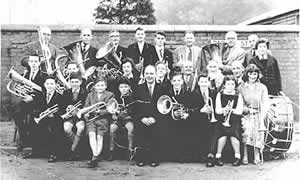
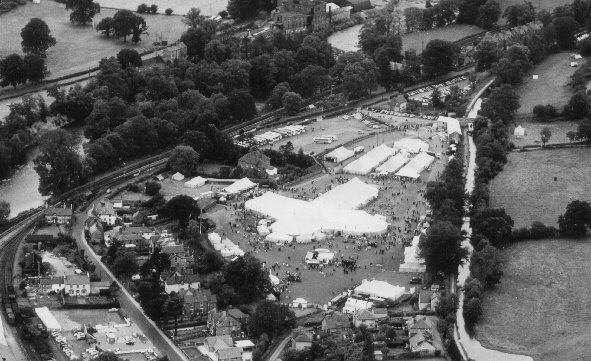
 The Eisteddfod, today, is still going strongly
with more than 6,000 competitors from about fifty different
countries taking part in competitions for male, female, mixed
and youth choirs. In addition there are colourful competitions
for dance groups and folk song parties. The Eisteddfod is
almost entirely run by volunteers and about 400 committee
members from the Llangollen area are busy throughout the year
ensuring the success of the festival.
The Eisteddfod, today, is still going strongly
with more than 6,000 competitors from about fifty different
countries taking part in competitions for male, female, mixed
and youth choirs. In addition there are colourful competitions
for dance groups and folk song parties. The Eisteddfod is
almost entirely run by volunteers and about 400 committee
members from the Llangollen area are busy throughout the year
ensuring the success of the festival.